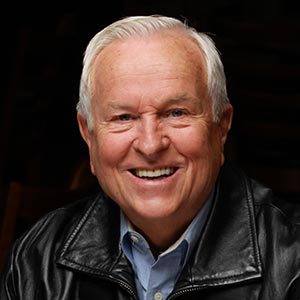Do you get your news and your cute kitten videos in the same place?
A large segment of the population turns to Facebook to learn what’s going on in the world around them. Nick Pitts explores what this means for our increasingly polarized society, and how we can respond constructively in a biblical manner—no matter how we get our news.
Facebook: Where Millennials Get the News and Feed Their Cows
Written by Nick Pitts for Denison Forum
It started out as place where you poked people. It then turned into a type of farm where you milked virtual cows and were attacked by cyber chickens. As time went by, it was the marketplace where you begged people to help you with your candy crush addiction. And now, Facebook is the place where you get your news.
Yesterday, Pew Research released their findings concerning the consumption of news among generations. When asked where they got political and government news from in the previous week, about six-in-ten Web-using millennials (61 percent) reported getting political news on Facebook. Coming in second place is CNN. While CNN might pride itself on being the most trusted name in news, it is not the most consumed. I guess you could compare it to green bean casserole at Thanksgiving; it can hold its own, but it plays second fiddle to dressing.
And for this Thanksgiving feast, millennials are sitting at the table awhile. According to Crowdtap, their research indicates that millennials spend an average of 17.8 hours a day with different types of media. For those that are keeping count, that leaves a total of 6.2 hours to sleep and socialize with other life forms outside of virtual reality. But don’t worry, 80 percent of millennials sleep with their cell phones by their bed. How else are they going to send on average 67 text messages a day about the latest news?
Like your calorie count at Thanksgiving, the numbers may be alarming, but it is important to understand the context. Since the advent of news media, there have always been new mediums that have been vying for our attention in order to inform our mind. The medium is not the problem, but the types of messages being filtered through the medium are.
We live in a highly polarized society.
In the short history of our country, we have become increasingly divided over political matters and what color is the dress. While political disagreements are not new, and we have evolved past the point of challenging each other to duels over our disagreements, we need to understand the new media landscape.
The Internet has made it possible for more information, both good and bad, to be more widely distributed. However, with more information there are less gatekeepers and filters in order to thresh out the inaccuracies. While inaccuracies are one issue, the Internet has also made it available for individuals to hear a type of news that suits their particular inclinations and political affiliations.
Known as the “filter bubble effect,” this concept assumes individuals choose to surround themselves figuratively with voices and sources that confirm their biases. Though they may not identify themselves politically on Facebook, this social media organization has the ability to remember what articles you read and suggest presently and into the future other sources that might suit those partisan interests.
It has been reported and substantiated that the Facebook newsfeed algorithm will tend to amplify news that piques your political flavorings. Facebook researchers have tried to counter these arguments, but it comes across like cigarette companies funding research with regards to the health benefits of smoking – an inevitable defeat.
Facebook isn’t the only one losing in this matter.
While there can be a lament over how a new generation is consuming highly polarizing information, one cannot forget the present state of the network and cable news. These sources which previous generations have utilized in order to become more informed have inserted themselves into the news more than reporting the news. Brian Williams stretched the truth, George Stephanopoulos is being questioned as to whether he can objectively report the truth, and Bill O’Reilly is facing accusations as to his trustworthiness.
There are obviously concerns about the medium through which the message is being communicated, however the greater concern is the messages flowing through the medium. The sheer amount of “news” requires a robust filter in order to discern truth from false, good from bad. So instead of lamenting the medium, we should construct sturdy filters that discern truth.
John Milton, the sixteenth century English poet and civil servant, believed the freedom of the press to be paramount in order to inform the public and hold government accountable. Ignorance within the mind, according to Milton, “can make a heaven of hell, a hell of heaven.” In his work Areopagitica, he wrote “Give me the liberty to know, to utter, and to argue freely according to conscience, above all liberties.”
Cautiously accepting claims at face value, we are to perform the due diligence of researching well and reading widely in order that we might build a filter that can discern truth and defend it.
As followers of the One who is wisdom (1 Corinthians 1:30), we are to seek wisdom and knowledge wherever we might find it, whether on Facebook, MSNBC, or out of one those things called books (Proverbs 2:4). We are to love the Lord our God with all of our minds, affirming truth wherever we might find it. As Augustine observed, all truth is God’s truth.
More than affirming it, we are to defend it both in season and out. We have news that even the angels yearn to hear (1 Peter 1:12).
Though we might not have the chance to sit down in the No-Spin Zone with Mr. O’Reilly, we do have the chance to post a status that our friends might see.
That status can contain words that do not return void (Isaiah 55). And these words are more than dressing at Thanksgiving, but they are like honey on the lips.













